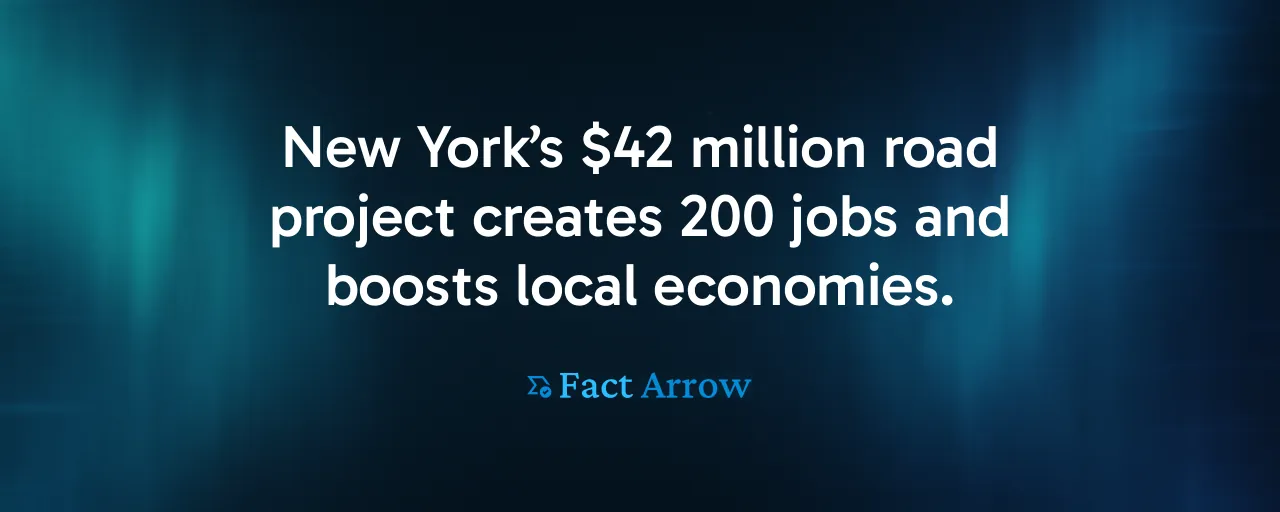A Lifeline Restored
Interstate 88 carves through New York's rolling hills, connecting quiet towns to bustling cities. It carries farmers to markets, families to memories, and tourists to Cooperstown's Baseball Hall of Fame. But years of neglect left its pavement cracked, endangering travelers and choking local economies. Governor Kathy Hochul's $42 million plan to revitalize stretches in Schoharie and Otsego counties changes that. This investment rebuilds roads and rekindles hope for communities long sidelined.
The scope is ambitious. Crews are resurfacing 40 lane miles with fiber-reinforced asphalt, fixing culverts, and upgrading bridges. By 2026, thousands of daily commuters will travel smoother, safer routes. Why does this matter? Infrastructure binds us together, and rural New Yorkers deserve roads as reliable as those in any city.
For too long, these regions watched their highways crumble while attention focused elsewhere. Hochul's initiative, fueled by the Bipartisan Infrastructure Law, rights that wrong. It prioritizes equity, ensuring small towns share in the state's progress. Over 200 local jobs are already flowing from the projects, a spark for economic renewal.
Sparking Growth, Mile by Mile
The impact is tangible. The $15.7 million project from Richmondville to the Schoharie-Otsego line, alongside the $26 million effort near Worcester, transforms the pavement, fueling prosperity. Tourism to places like Cooperstown is expected to climb 8%, filling motels, diners, and shops with new customers. Small businesses, the heart of these towns, will thrive as travelers find easier routes.
Jobs are another win. Over 200 construction workers are employed, with ripple effects lifting local economies. The Bipartisan Infrastructure Law, backed by leaders like Senator Charles Schumer, has created tens of thousands of jobs nationwide, with more projected. These are real paychecks, supporting families in Otsego and Schoharie counties.
Advocates for fiscal austerity advocate slashing infrastructure budgets to avoid deficits, pushing for reallocated funds and strict caps. Yet this ignores the cost of inaction. Since 1960, interstate construction costs have soared due to delays. Hochul's proactive investment saves money in the long run, sparing taxpayers bigger bills later.
Building for Tomorrow's Challenges
These projects also confront the pressing reality of climate change. Storms and floods increasingly threaten aging roads. I-88's upgrades, with repaired culverts and fortified bridges, are designed to endure. The federal PROTECT program, investing $8.7 billion to strengthen infrastructure against climate risks, reinforces this work, ensuring I-88 remains a reliable artery for decades.
Resilience is non-negotiable. Rural areas, often hardest hit by extreme weather, need infrastructure that holds firm when disaster strikes. By embedding climate-smart designs, New York protects lives and livelihoods. Can we afford to wait? The American Society of Civil Engineers' 2025 Report Card flags a $9.1 trillion infrastructure gap. Delay only compounds the problem.
Proponents of cost-cutting regulatory reform push cost-cutting through regulatory tweaks, like loosening Davis-Bacon wage rules to save 20%. But this undercuts workers, weakening the communities these projects serve. Fair wages drive local prosperity, a more significant outcome than merely cheaper roads. Hochul's balanced approach, merging resilience, equity, and growth, shows what public investment can do.
A Legacy of Progress
The I-88 projects reflect the timeless truth that public investment powers progress. From the New Deal's millions of jobs to the Interstate Highway Act's 41,000 miles of roads, history proves this. Today's Bipartisan Infrastructure Law, with $591 billion across 72,000 projects, carries that torch. New York's efforts rebuild highways, fostering trust in what we can achieve together.
Advocates for fiscal responsibility may call this spending excessive, but strong infrastructure unlocks private success. Farmers reach markets faster. Families travel securely. Businesses grow. Hochul's leadership, paired with federal support, delivers results where they're needed most.
As I-88's renewal takes shape, it stands as proof of what's possible when we invest in people. Let's keep building, road by road, community by community, for a stronger, fairer future.
